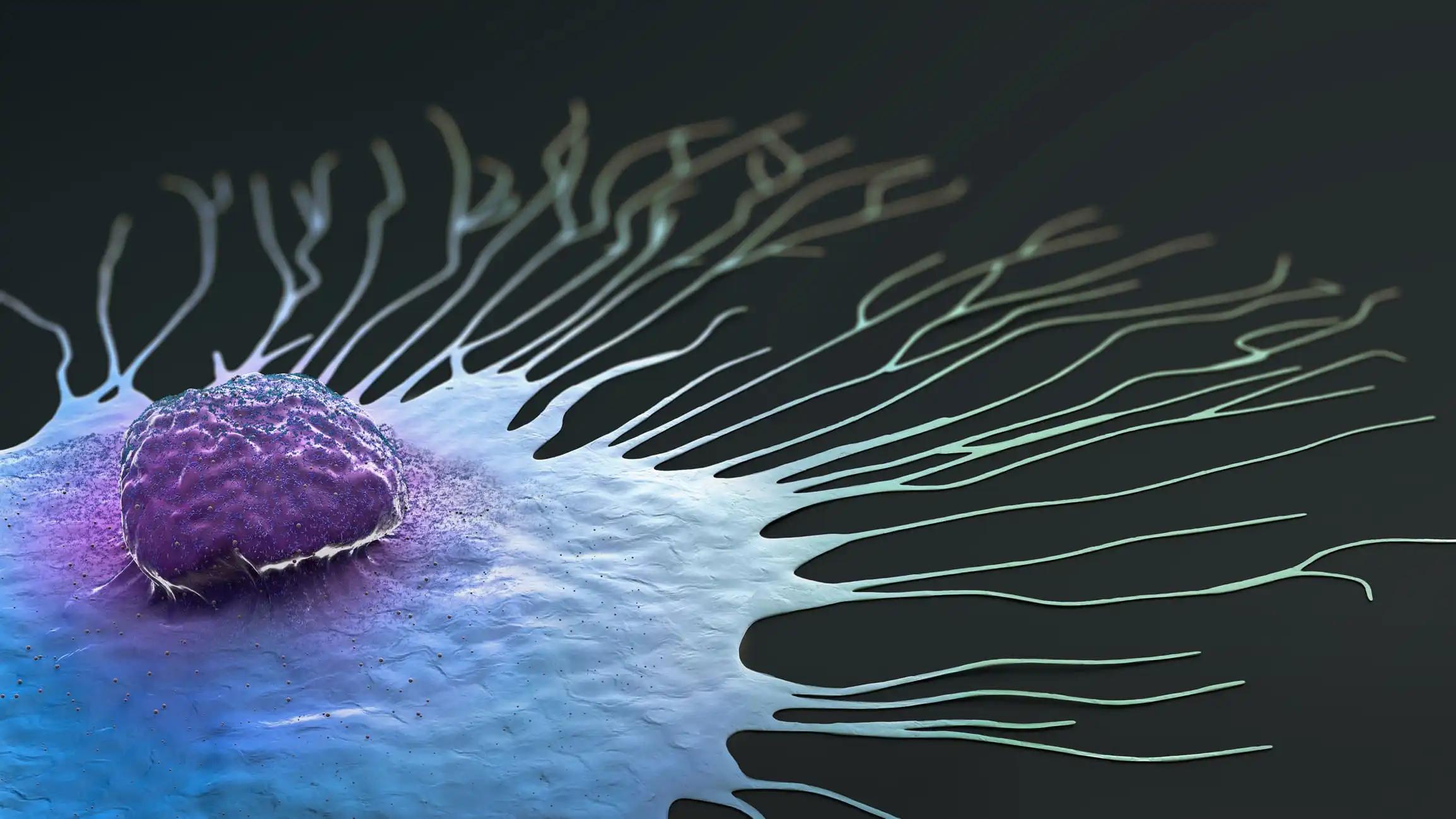KEY TAKEAWAYS
- A CAPItello-291 phase 3 trial is evaluating the efficacy of capivasertib in combination with Faslodex versus placebo plus Faslodex for treating locally advanced (inoperable) or metastatic HR-positive, HER2-low, or negative breast cancer.
- Endocrine therapies that target ER-driven disease are used as 1st-line treatment for this form of breast cancer in the advanced setting and are often paired with cyclin-dependent kinase (CDK) 4/6 inhibitors.
- Capivasertib is being evaluated with existing therapies in tumors harboring PI3K/AKT/PTEN pathway alterations.
- The capivasertib clinical research program is investigating the safety and efficacy of capivasertib when combined with established treatment regimens.
Most cases of breast cancer are hormone receptor (HR) positive (expressing estrogen or progesterone receptors, or both), and ER is a common factor in the proliferation of HR-positive breast cancer cells. In the advanced context, endocrine treatments that target ER-driven illness are commonly utilized as first-line treatment and are frequently combined with cyclin-dependent kinase (CDK) 4/6 inhibitors. Unfortunately, many patients with advanced illness acquire resistance to CDK4/6 inhibitors and existing endocrine treatments, limiting therapeutic options. Researchers are working hard to find ways to improve the effectiveness of endocrine therapy at every step of treatment for patients with ER-driven illness.
The CAPItello-291 trial is a randomized, double-blind study of capivasertib, an AKT (serine/threonine kinase) inhibitor now in clinical testing. Clinical trial CAPItello-291 compares capivasertib plus Faslodex to placebo plus Faslodex in treating advanced (inoperable) or metastatic HR-positive, HER2-low, or negative breast cancer.
Adults with histologically confirmed HR-positive, HER2-low, or negative breast cancer whose disease has recurred or progressed during or after aromatase inhibitor therapy, with or without a CDK4/6 inhibitor, and up to one line of chemotherapy for advanced disease, numbered 708 in the global trial. Overall, PFS and PFS in patients whose tumors exhibit qualifying changes in the PIK3CA, AKT1, or PTEN genes are the trial’s primary objectives. About 40% of tumors in the experiment showed changes in PI3K/AKT/PTEN.
Capivasertib is a novel oral therapy being tested for the treatment of various breast cancer subtypes, as well as prostate cancer, and in a Phase II trial for hematologic malignancies. Capivasertib is being studied in combination with current treatments for tumors that have alterations in the PI3K/AKT/PTEN pathway and for tumors that rely on signaling via this pathway for survival.
It is a potent, selective adenosine triphosphate (ATP)-a competitive inhibitor of all three AKT isoforms (AKT1/2/3). Capivasertib is taken on a 4-day on, three-day off regimen. This was selected in preliminary studies due to its high target inhibition and low toxicity.
Combining capivasertib with standard therapies is being studied as part of the clinical research program.
Source: https://www.astrazeneca.com/media-centre/press-releases/2022/capivasertib-phase-iii-trial-met-primary-endpoints.html
Clinical trial: https://clinicaltrials.gov/ct2/show/NCT04305496
Hurvitz, S. and Mccann, K. (2018). HER2-Positive Breast Cancer. Philadelphia: Elsevier.



